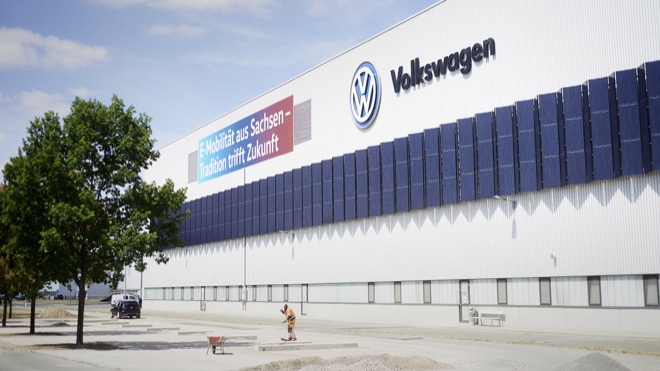The Volkswagen Group’s plant in Zwickau, Germany is
undergoing a massive modernization process. When it’s done, the facility will
be one of the biggest all-electric car factories in the world.
The German automaker is investing some €1.2 billion to shift the plant’s production from three legacy models to six pure EVs from VW, Seat and Audi, all based on the new MEB platform.
Zwickau is a historic plant – during the East German era, the famously mediocre Trabant 1.1, known as the “racing cardboard,” was built here. Since the reopening of the site in 1990, it has produced more than 5.5 million VW vehicles.
The conversion of the 1.8-million-square-meter factory began in the summer of 2018 with the modernization of the production lines. The first of two assembly lines for EV production is expected to go into service this August. The site’s second line will be converted and go into operation in 2020. The new lines will incorporate some 1,625 robots. 50 partner companies are helping with the conversion.
The first electric model to roll off the line in Zwickau will be the Volkswagen ID.3. Production is scheduled to begin in late 2019. Production will gradually increase, reaching 330,000 vehicles per year by 2021.
Currently, the plant capacity is 1,350 cars per day – this will increase to 1,500. VW says the single platform, combined with the greater simplicity of EVs, will allow the company to produce more vehicles in the same footprint with the same workforce. The revamped plant incorporates several features designed to make production “largely CO2-free.”
“Volkswagen is set to build the attractive, affordable e-car for everyone,” says the company. “An e-car for millions, not just for millionaires. To do so, the Volkswagen plant in Zwickau is currently being transformed into the first, largest, highest-performing – and most environmentally friendly – e-factory in Europe.”
Source: Volkswagen via InsideEVs



















































